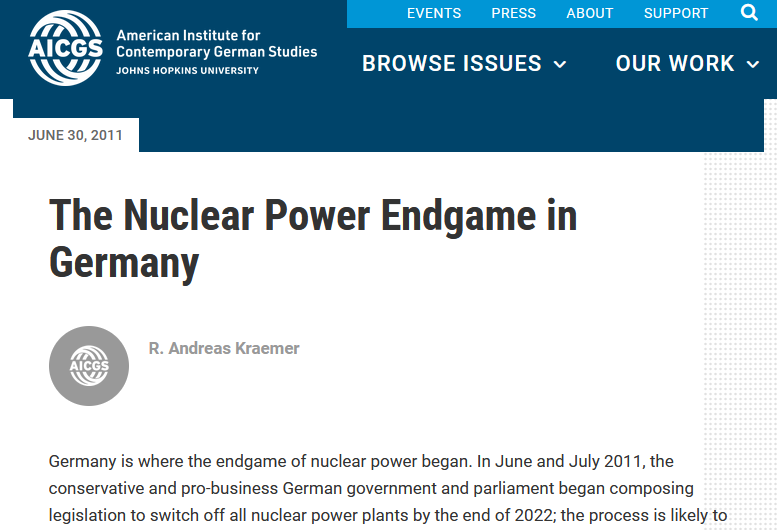Germany, Fukushima and Global Nuclear Governance
- Publication
- Citation
Kraemer, R. Andreas 2012: “Germany, Fukushima and global nuclear governance”. Strategic Review The Indonesian Journal of Leadership, Policy and World Affairs, Vol. 2, No. 4, 143-152.
After the Fukushima incident, Germany was unique in being able to pass a law aiming to close all nuclear power plants by the end of 2022. Investments in the development, demonstration, and deployment of renewable energies over the past decades, along with the "feed-in tariff," which since 1991 has rewarded successful operators of renewable power plants, enabled Germany to do so. In his essay in Strategic Review, R. Andreas Kraemer of Ecologic Institute retells the history of nuclear technology and the clean energy industry in Germany and sketches the outlook for international institutions and agreements on nuclear energy and proliferation, including liability frameworks for damages from nuclear accidents. The article is available for download.
R. Andreas Kraemer addresses nuclear energy economics, technology risks and proliferation as well as renewable energies on Facebook (open for subscription) and Twitter.







